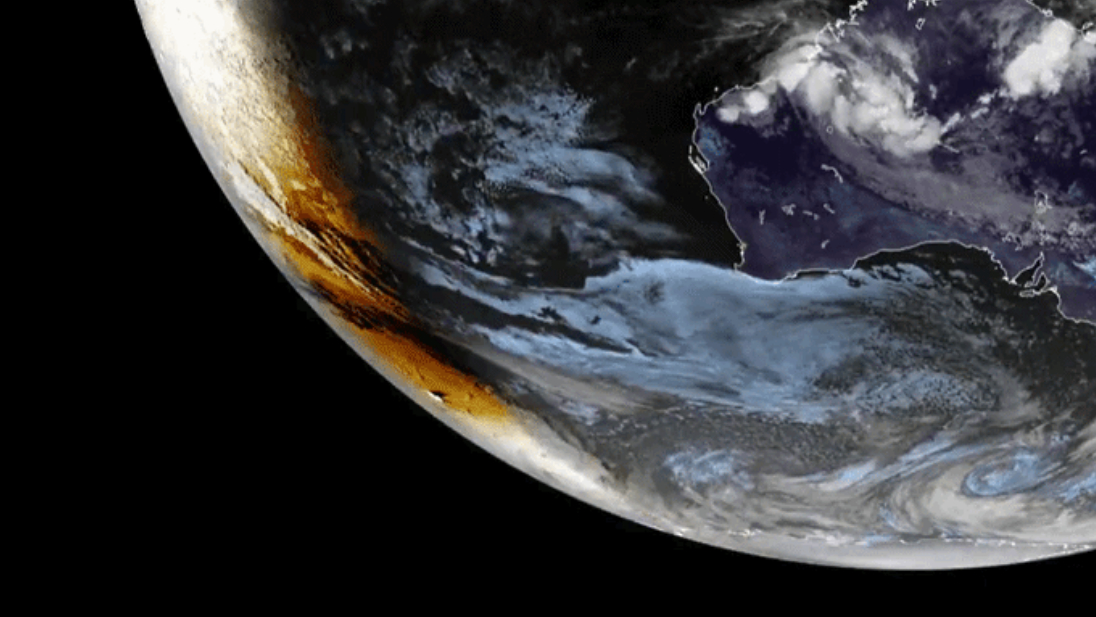SpaceX is launching 60 more Starlink satellites today. Here's how to watch live.
Liftoff is 9:06 a.m. EST (1406 GMT).
Breaking space news, the latest updates on rocket launches, skywatching events and more!
You are now subscribed
Your newsletter sign-up was successful
Want to add more newsletters?

Delivered daily
Daily Newsletter
Breaking space news, the latest updates on rocket launches, skywatching events and more!

Once a month
Watch This Space
Sign up to our monthly entertainment newsletter to keep up with all our coverage of the latest sci-fi and space movies, tv shows, games and books.

Once a week
Night Sky This Week
Discover this week's must-see night sky events, moon phases, and stunning astrophotos. Sign up for our skywatching newsletter and explore the universe with us!

Twice a month
Strange New Words
Space.com's Sci-Fi Reader's Club. Read a sci-fi short story every month and join a virtual community of fellow science fiction fans!
Update for Jan. 29 at 10 am ET: SpaceX has successfully launched its new Starlink-3 satellites. Read our full launch story here.
Update for Jan. 27 at 6:30 p.m. ET: SpaceX is now targeting no earlier than Wednesday (Jan. 29) at 9:06 a.m. EST (1406 GMT) for this Starlink launch "due to poor weather in the recovery area," the company tweeted Monday night.
Update for Jan. 27 at 9:21 a.m. ET: SpaceX has delayed today's planned Starlink launch due to high upper level winds.
The private spaceflight company SpaceX will launch 60 new Starlink satellites to join its growing broadband internet megaconstellation in orbit today (Jan. 29), and you can watch it live online.
A SpaceX Falcon 9 rocket will launch the Starlink mission from Space Launch Complex 40 at Cape Canaveral Air Force Station in Florida. Liftoff is scheduled for no earlier than 9:06 a.m. EST (1406 GMT).
You can watch SpaceX's Starlink launch webcast here on Space.com, courtesy of SpaceX, beginning about 15 minutes before liftoff. You can also watch the launch directly from SpaceX here.
SpaceX has an 80% chance of good launch weather today, according to the 45th Weather Squadron of the U.S. Air Force, with thick clouds and "disturbed weather" as the chief concern.
Breaking space news, the latest updates on rocket launches, skywatching events and more!
If SpaceX is unable to launch the Starlink-3 mission today, the company has a backup launch opportunity on Thursday, Jan. 30, at 8:45 a.m. EST (1345 GMT). That launch day has an 70% chance of good weather.
Video: See SpaceX's 1st Starlink satellites in the night sky
In Photos: SpaceX launches third batch of 60 Starlink satellites to orbit
The goal of SpaceX's Starlink project is to provide constant, high-speed internet access to users around the world through a massive constellation of broadband internet satellites operating in low Earth orbit. Users on the ground would then only need a small terminal that's no bigger than a laptop to gain internet access.
"Starlink will provide fast, reliable internet to locations where access has been unreliable, expensive, or completely unavailable," the company wrote in its Starlink mission description.
The majority of SpaceX's missions in 2020 will consist of Starlink launches as the company works to expand its fleet of internet-beaming satellites, including at least one more batch of 60 Starlink satellites scheduled to launch before the end of January. SpaceX CEO and founder Elon Musk has said the company will need at least 400 Starlink satellites in orbit to offer "minor" broadband coverage, and at least 800 to provide "moderate" coverage.
SpaceX plans to operate its initial batch of 1,584 satellites 341 miles (549 kilometers) above Earth, hovering much lower than traditional communications satellites that operate out of geostationary orbit. Those satellites are too far away to provide the kind of lower-cost coverage SpaceX aims to establish, Musk has said.
Related: SpaceX's 1st Starlink megaconstellation launch in photos!
According to the company, Starlink commercial internet services could debut in parts of the U.S. and Canada after about half a dozen more launches, with global coverage after 24 launches. SpaceX's president and chief operating officer Gwynne Shotwell has said that coverage could begin sometime this year, but the company has not yet announced pricing for its new service.
However, not everyone is thrilled about the idea of SpaceX's new megaconstellation. Astronomers have voiced concerns that the satellites could interfere with crucial scientific observations. To help ease their concerns and mitigate the satellites' apparent brightness, SpaceX is experimenting with special coatings that are supposed to make the satellites appear darker in orbit.
Related: Why SpaceX's Starlink satellites caught astronomers off guard
During today's launch, SpaceX aims to recover the Falcon 9's first-stage booster with an offshore landing on its drone ship Of Course I Still Love You.
The company will also attempt to catch both halves of the rocket's payload fairing using the giant nets on its recovery boats Ms. Tree and Ms. Chief stationed in the Atlantic Ocean.
Visit Space.com today for complete coverage of SpaceX's Starlink launch.
- SpaceX's Starlink Constellation Could Swell by 30,000 More Satellites
- SpaceX's Starlink Broadband Service Will Begin in 2020: Report
- 'Whoa, It Worked': Elon Musk Tweets Via SpaceX's Starlink Satellites
Follow Amy Thompson on Twitter @astrogingersnap. Follow us on Twitter @Spacedotcom or Facebook.


Amy Thompson is a Florida-based space and science journalist, who joined Space.com as a contributing writer in 2015. She's passionate about all things space and is a huge science and science-fiction geek. Star Wars is her favorite fandom, with that sassy little droid, R2D2 being her favorite. She studied science at the University of Florida, earning a degree in microbiology. Her work has also been published in Newsweek, VICE, Smithsonian, and many more. Now she chases rockets, writing about launches, commercial space, space station science, and everything in between.
